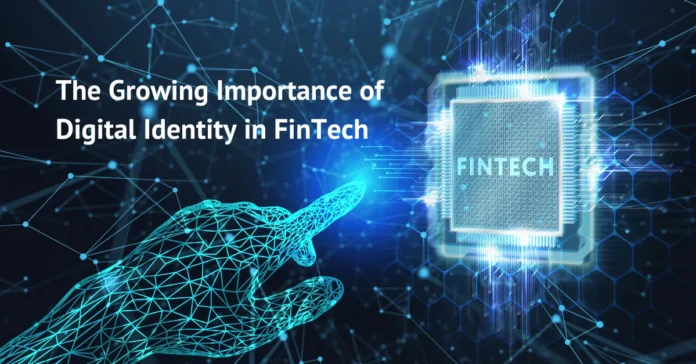In the rapidly evolving FinTech industry, digital identity has emerged as a critical factor in shaping the future of financial services. With an increasing reliance on digital platforms for financial transactions, securing and verifying user identities has become essential to ensuring trust, security, and compliance. Here’s a deeper look at why digital identity is so important in the FinTech space and how it’s driving change:
1. Enhanced Security and Fraud Prevention
- Challenge of Identity Theft: The rise of digital banking and online financial services has unfortunately also increased the risk of identity theft, fraud, and data breaches. As FinTech platforms handle sensitive financial data, ensuring secure user authentication is paramount.
- Solution: Digital identity technologies, such as biometric authentication, two-factor authentication (2FA), and blockchain-based identity verification, provide stronger security measures to protect users from unauthorized access. These technologies ensure that only legitimate users can access financial accounts, reducing fraud risks.
2. KYC (Know Your Customer) and AML (Anti-Money Laundering) Compliance
- Compliance Requirements: Financial institutions are required by law to verify the identity of their clients to prevent money laundering and other financial crimes. Traditionally, this process involved manual checks, which were time-consuming and prone to error.
- Digital Identity Role: Digital identity solutions streamline the KYC and AML processes, allowing businesses to instantly verify the identities of customers using secure, digital methods. This not only enhances compliance but also reduces the time and costs associated with manual verification, enabling FinTech companies to provide faster and more efficient services.
3. User Experience and Convenience
- Seamless Onboarding: FinTech companies must provide a frictionless user experience to attract and retain customers. Traditional identity verification methods often require users to submit physical documents or go through lengthy verification processes.
- Solution: Digital identity verification allows users to complete the onboarding process quickly and securely, often with just a selfie or an ID scan. This streamlined process improves the user experience, making it easier for customers to access financial products and services.
4. Access to Financial Services for the Underserved
- Financial Inclusion: A significant portion of the global population remains underserved by traditional financial systems, especially in developing regions. The lack of formal identity documents prevents many people from opening bank accounts or accessing financial services.
- Digital Identity for Inclusion: Digital identity solutions, such as mobile ID or biometric verification, offer a way to provide financial services to people who may not have access to conventional forms of identification. This can help bridge the gap and promote financial inclusion, empowering individuals who were previously excluded from the financial system.
5. Blockchain and Decentralized Digital Identity
- Decentralization: One of the key challenges with digital identity is the centralized nature of identity management, where user data is often stored and controlled by a single entity (e.g., a bank or a government). This creates security risks and privacy concerns.
- Blockchain-based Identity Solutions: Blockchain technology enables the creation of decentralized digital identities, where users control their own identity data. By using blockchain for identity management, users can grant access to their identity information on a need-to-know basis, ensuring greater privacy and security.
6. Regulatory Considerations
- Global Regulations: FinTech companies must comply with various regulations related to data protection and privacy, such as GDPR (General Data Protection Regulation) in Europe and CCPA (California Consumer Privacy Act) in the U.S.
- Digital Identity in Compliance: Digital identity solutions can help companies comply with these regulations by offering secure, privacy-preserving methods of verifying identities. Additionally, digital identities can be managed in a way that gives users more control over their personal information, addressing privacy concerns.
7. Personalization of Financial Products and Services
- Tailored Offerings: In the competitive FinTech space, businesses are increasingly using data to personalize financial products for their customers. Accurate and secure digital identities enable companies to gather the necessary data to deliver personalized financial services, such as tailored investment plans, loans, or insurance products.
- Enhanced Customer Insights: By using digital identity data in a secure and compliant manner, FinTech firms can gain valuable insights into their users’ financial behaviors and preferences, allowing them to offer more relevant and customized products.
8. Future Trends in Digital Identity for FinTech
- Emerging Technologies: The future of digital identity in FinTech will likely involve advancements in AI-powered biometrics, digital wallets, and multi-modal authentication. These technologies will continue to improve security, convenience, and user trust.
- Integration with Other Services: As digital identity technology evolves, it is expected to integrate more seamlessly with other areas of financial services, such as lending, insurance, and wealth management. This will create a unified digital experience for users across multiple services.
Conclusion
Digital identity is rapidly becoming a cornerstone of the FinTech ecosystem, enabling businesses to provide secure, compliant, and seamless financial services to a broader range of users. From improving security and fraud prevention to enabling financial inclusion and personalized services, the growing importance of digital identity cannot be overstated.
As technology continues to evolve, FinTech companies must stay ahead of the curve by adopting secure, innovative digital identity solutions. This not only ensures they remain compliant with regulations but also enhances customer trust and satisfaction, paving the way for a more efficient, accessible, and secure financial future.
#DigitalIdentity #FinTech #IdentityVerification #Blockchain #CyberSecurity #FinancialInclusion #KYC #AML #RegTech


